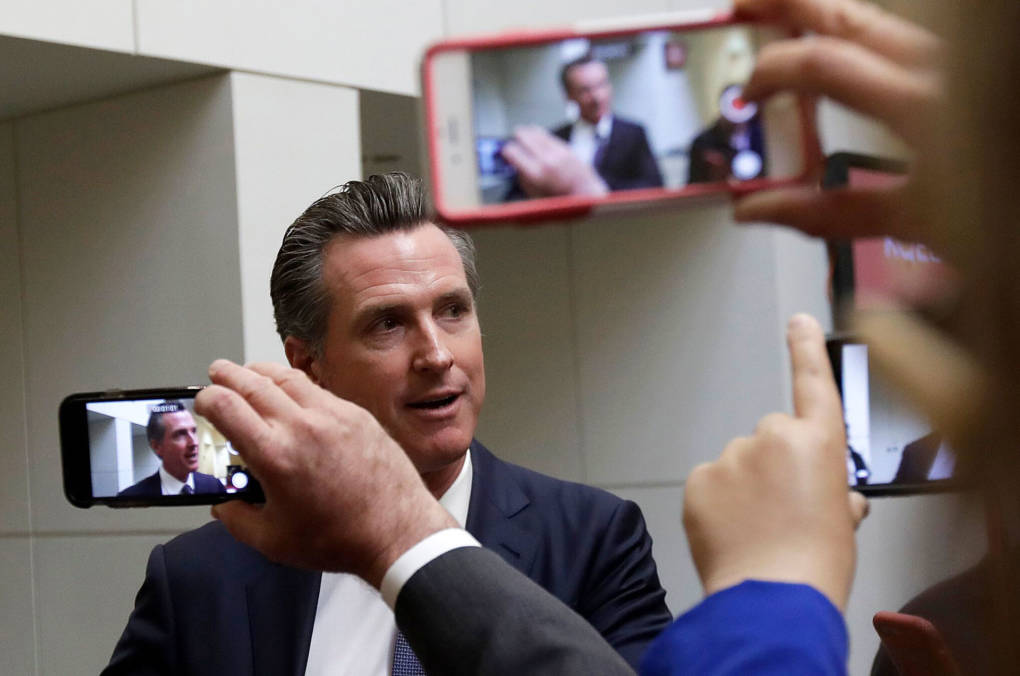Chamber of Commerce lobbyist Sarah Boot said changing the privacy law to allow for more lawsuits would trigger “a class action bonanza.”
“Frankly, our court system can’t handle that. California businesses can’t handle it. And the California economy can’t handle that,” Boot said in a hearing before Jackson’s bill was introduced.
Another flashpoint is a change the tech industry wants—limiting which bits of information consumers can opt out of having sold. Tech companies argue that the law should be narrowed so they can still exchange non-identifiable information with advertisers about, for instance, users’ devices and operating systems.
“Treating this as the sale of personal information jeopardizes the underpinnings of the internet,” said Internet Association lobbyist Kevin McKinley.
Privacy advocates caution that some changes that seem small may actually weaken the law.
“Powerful tech companies and their clever lobbyists know how complex privacy policies are and what they may present as a small tweak here and there can fundamentally change the entire law and completely obliterate the rights people have,” said a statement from Jim Steyer, CEO of Common Sense Media, a nonprofit that is part of a coalition of privacy advocates.
Politics Aren’t on Usual Lines
Lawmakers passed the privacy bill last year with a sweeping bipartisan vote, and the issue continues to resonate across the political spectrum.
Republicans—trying to make themselves relevant in a Legislature where Democrats have an enormous majority—have introduced a package of privacy bills, including one that would require social media companies to permanently delete data when people delete their account, and another that would prohibit companies from saving the voice commands people give smart speakers such as Amazon’s Alexa.
GOP Assemblyman Jordan Cunningham said he’s gotten some blowback from business lobbyists who are used to having Republicans on their side.
“Some people are like, ‘What are you guys doing?’” said Cunningham, of San Luis Obispo.
“Privacy is a nonpartisan issue to me. It’s a nonpartisan issue to my constituents. When I talk to people in my district, they uniformly want this stuff. They know their data is being used in ways they’re not aware of."
”Democrats control the legislative process, so one political question to watch is whether they allow Republican privacy bills to advance, or quietly kill them by preventing them from coming up for a vote.
The other political question is whether Democrats themselves will split over any of the proposals, as happens on many fights in the Capitol that impact big business.
“I think there will be a real battle between the pragmatists and the idealists,” said Steve Maviglio, a Democratic political consultant who worked on the tech companies’ brief campaign against the privacy ballot measure. “That’s where it’s going to lie.”
Washington is a Wildcard
While California is debating changes to its privacy law, federal lawmakers are also considering a nationwide version. At a pair of hearings this week in Washington, House Democrats vowed to get tough on tech companies and Senate Republicans said they would like to pass a national privacy law that overrides California’s.
Internet companies would prefer a single national law to a patchwork of rules across the states.
Privacy advocates, meanwhile, have argued that any nationwide privacy law should be structured to set a tough minimum baseline of privacy protections that state laws could build on.
Built into the argument is the sense, on both sides, that California’s size and market influence will do for internet regulation what it did for rules around auto emissions—force the industry to essentially default to California’s regulations as the national standard.
There, too, California politics could be a factor.
Mactaggart says he thinks it’s unlikely that Congress will pass a law that would substantially weaken California’s, given the size of the state and the prominence Californians hold in the House—both the speaker, Democrat Nancy Pelosi, and the minority leader, Republican Kevin McCarthy, hail from the Golden State.
“It’s going to be hard for them to step in and gut a law that protects one in eight Americans,” Mactaggart said.


